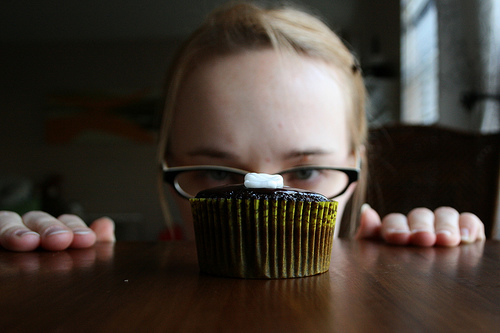
I started cooking around 5, unaware it would start an argument. I was in Auckland, running out of money, overwhelmed by the prospect of a job search with no contacts in a foreign country. My whole life, job searching had terrified me at the best of times. This was not the best of times.
I’d been loafing in the same K-Road hostel for about three weeks, and with both my cash and confidence dwindling, the best part of my day had become the hard-boiled egg with spaghetti and pesto I had for every dinner.
“Dinner at 5? Not very sexy!” the Italian girl said, hovering behind me somewhere. I didn’t disagree, but I don’t eat dinner to be sexy. Before I could think of something clever to say, the middle-aged Bostonian appeared at the counter.
“Oh, we know, you Europeans are very uptight about appearing relaxed, and so you eat when the people you think you’re superior to are thinking about going to bed. Americans eat at six o’clock.” He looked to me and nodded.
“Five is too early. Six is too early,” said Tommy, the Irishman who funded his travels by live betting on soccer and cricket. He was glued to the TV but listening.
“I’m hungry,” I explained.
I could hear Alessandra roll her gigantic eyes. The American repeated himself, this time thumping his fist on the counter for each word. “Americans eat at six o’clock.”
Alessandra flung her hands up in the air and called us “Fucking yankees,” which was the second of three times I would be called a fucking yankee on that trip.
“I’m Canadian,” I said. “But I eat when I’m hungry, which is usually six o’clock.”
She started into it again and I left it to the the Bostonian. In the ensuing argument a whole list of stolen Italian cultural icons came up from both sides: espresso, gelati, mafia archetypes, Christopher Columbus, sports cars. I wished they would leave. They were ruining the best part of my day, which was already pretty bleak.
This inane, inter-cultural debate was the last thing I remember before I was struck with what might have been the biggest revelation of my life. I remember tuning out the arguing, and staring into my pesto, and having an extremely dark thought: after I ate my dinner, the best part of my day would be over, and it was all shit until the next time I made dinner.
The thought made me so sad I felt dizzy. I went out on the balcony even though it was grey and drizzling. I breathed and reminded myself just to watch my breathing and let my thoughts talk themselves in circles if they wanted to.
In a minute or two, (or ten?) the jabbering of the argument in the kitchen seemed like a long time ago and the ambient sound of the city took over. Cars driving on wet streets, distant honking, wind.
My mind was clear and I could see that the look and sound of the city represented the facts of things, and the mess of fearful thoughts that had momentarily left me represented the negative spin I habitually put on all of it.
I had always assumed I was an optimist, because I was so hopeful. But clearly I was preoccupied with the negative side of everything and had been all my life. This was a shock to me but it sure explained a lot. Read More
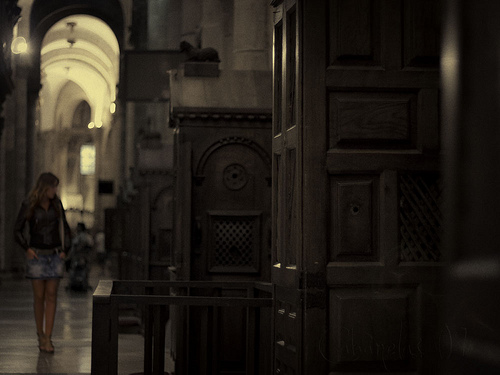



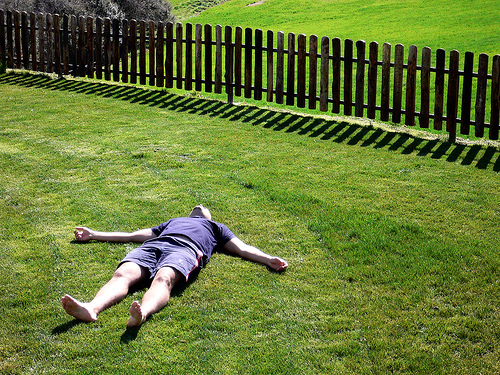

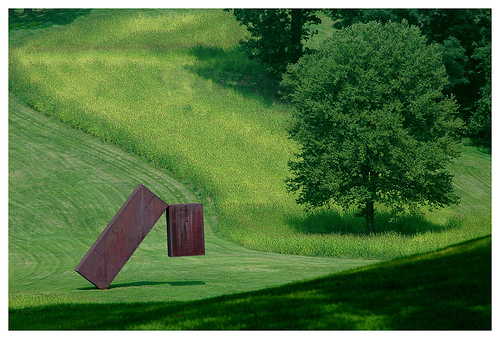
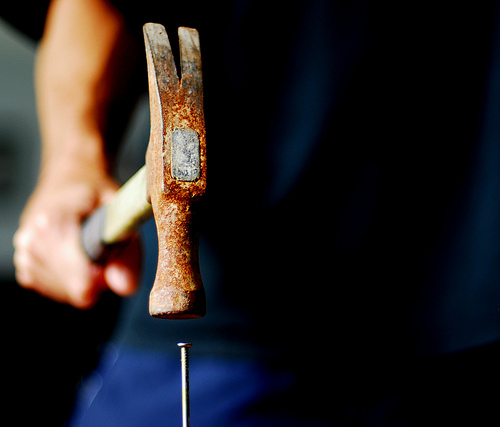
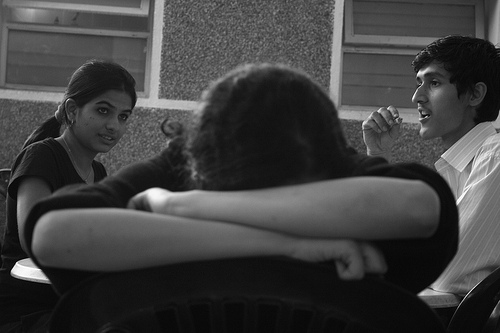
 I'm David, and Raptitude is a blog about getting better at being human -- things we can do to improve our lives today.
I'm David, and Raptitude is a blog about getting better at being human -- things we can do to improve our lives today.
Thank you for your useful content